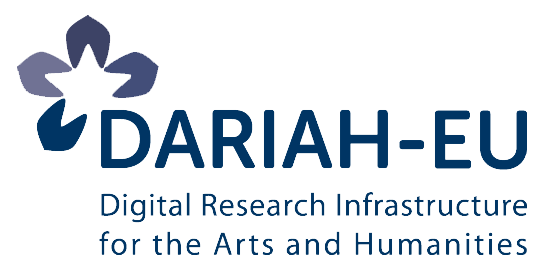ACDH-CH Lecture 7.1
Online, 9 March 2021

Stefanie Acquavella-Rauch
Universität Mainz
Digitality and Music Editions: Thinking about the Roles of Editors
Digitality is as much a method as it is phenomenon of textuality and media – or: ›mediality‹. In musical editions it opens new ways of accessing and presenting music and musical sources. Researchers who deal with these questions are permanently changing their roles as music philologists, editors and mediators. Following the diverse discussions about authorship in literature studies and, for some time, in musicology, this lecture aims to focus on editors and their various roles as actors of digitality.
On the one hand, the boundary between transparent action and the shifting of editorial decisions towards the recipients of a music edition is to be examined more closely. Since several studies have already shown that the outcome of musicology-related digital methods is to be found in musicological thinking, it is important – on the other hand – to take a closer look at the reasons for these changes. Could they be the result of new digital possibilities in music editions and do they occur during the editing process? Or did digitality enable other ways of academic thinking, so that there is really a shift in editorial concepts in general?

Stefanie Acquavella-Rauch
Stefanie Acquavella-Rauch earned her master's degree in musicology, historical auxiliary sciences, and English linguistics at the Philipps-Universität Marburg in 2004, where she received her doctorate on Schoenberg’s creative process (Die Arbeitsweise Arnold Schönbergs – Kunstgenese und Schaffensprozess) in 2008. After positions as a research assistant at the project “Opera –Spectrum des Europäischen Musiktheaters” of the Akademie der Wissenschaften und der Literatur Mainz, and as a lecturer at various universities, she was assistant professor at the musicological department of the Universität Paderborn and the Hochschule für Musik Detmold from 2009 to 2016. After accepting the call for a junior professorship at Johannes Gutenberg-Universität Mainz and the Gluck Complete Edition of the Akademie der Wissenschaften und der Literatur Mainz in 2016, she also qualified as a professor (Habilitation) in the same year with a book on Music Stories: Of Forgotten Musicians and ›Lost‹ Residences in 18th century (Musikgeschichten: Von vergessenen Musikern und ›verlorenen‹ Residenzen im 18. Jahrhundert. Amateure und Hofmusiker – Edinburgh und Hannover) at the Universität Paderborn. In 2020 she turned down an offer for a W3 professorship at the Staatliche Hochschule für Musik Trossingen and accepted the offer of the Universität Mainz to stay. She is the spokesperson for the Digital Musicology Section in the Gesellschaft für Musikforschung and Vice-Spokesperson for the Commission for Edition Studies and Digital Humanities in the Arbeitsgemeinschaft für germanistische Edition.



Date
9 March 2021 – 16:45 CEST
Place
Online via Zoom
Contact

